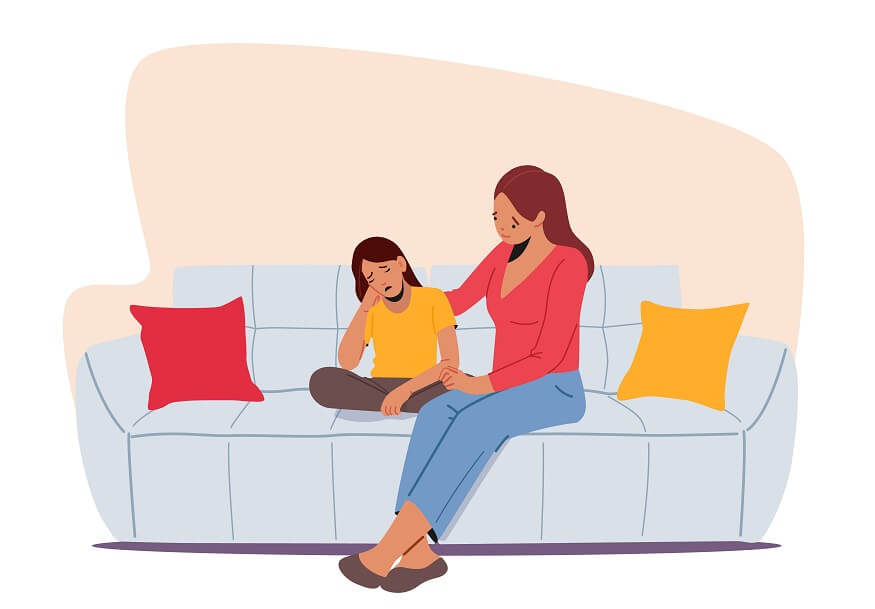Sharing with others is important, and it is only helpful for their development if children know and imbibe this. Sharing is a crucial ability that promotes teamwork, empathy, and interpersonal communication. Kids, however, may find it challenging to understand this concept. In this blog by EuroSchool, we discuss how to teach kids to share and why it is helpful.
Also Read: Effective ways on teaching children the joy of sharing
Methods for teaching kids to share
Here are some methods you might employ to teach your kids to share.
Model Sharing: The most effective way to teach sharing is by setting a good example. Show your child how you share with others, narrating your actions as you do so. For example, you might say, “I’m going to share my biscuits with Daddy. Would you like one, too?” Children learn a lot from observing adult behaviours.
Start with Turn-Taking: Younger children often find it easier to understand the concept of taking turns rather than sharing. You could use a timer to help make the turn-taking visible. When it’s their turn, set the timer for a specific period, and when it beeps, it’s the other person’s turn.
Use Cooperative Games: Playing games that involve teamwork and sharing can make the process fun. By participating in cooperative activities like “pass the parcel” or putting together puzzles, kids can discover the fun and value of sharing.
Encourage Empathy: Help your child understand how it feels when someone shares with them and when someone doesn’t. To illustrate these circumstances, use children’s literature or role-playing games.
Use Praise and Positive Reinforcement: Whenever your child shares, praise them for it. They will be more inclined to repeat the behaviour in the future if they receive this positive reinforcement. Be specific with your praise, for instance, say, “I saw how you shared your toy with your sister. That was very kind.”
Teach them to Express Their Feelings: Children might not share because they are afraid of losing their toy or because they feel overwhelmed. Teaching them to express their feelings verbally can help them navigate these situations. Encourage them to use phrases like “I’m still playing with this, but you can have a turn when I’m done.”
Practise Patience: Learning to share takes time. Children might need to be reminded repeatedly before they start sharing spontaneously. Keep repeating the point with patience.
Introduce the Concept of Borrowing: Sometimes children struggle to share because they’re afraid they won’t get their things back. It could be helpful to teach children about borrowing. Explain that when someone borrows their toy, they’ll always get it back.
Respect Their Special Toys: Everyone has special items that they don’t want to share, and that’s okay. Give your youngster a few toys that they are free to keep. This respect for their personal belongings can make them more likely to share other items.
Involve Them in Problem-Solving: If there’s a conflict over a toy, instead of imposing a solution, involve your child in the problem-solving process. Ask them, “How can we make sure everyone gets a turn?” This can help them develop their own sharing strategies.
Demonstrate Generosity: Teach your child the joy of giving. You could involve them in preparing a gift for a friend or donating some of their unused toys to a charity.
Share Everyday Items: Sharing isn’t just about toys. Share commonplace goods with your youngster, such as food, literature, or a seat on the couch. This will teach them that sharing is a common practise in everyday life. Teaching kids to share involves patience, perseverance, and a lot of practise.
Although it won’t happen right away, your youngster will eventually comprehend and embrace the importance of sharing. It’s important to remember that each child is unique, so what works for one child might not work for another.
Try a few different strategies before settling on the one that works best for your youngster.
The secret is to make sharing rewarding and joyful.
Also Read: Tips to creating a room for siblings to share
Why should kids practise sharing?
A child’s social and emotional development requires them to learn how to share, and doing so is advantageous for a number of reasons.
Develops Social Skills: Sharing teaches kids how to play and interact with others. They pick up negotiation, cooperation, and compromise techniques—skills that are essential for creating enduring bonds with people.
Develops Empathy: When children share, they learn to consider the feelings and needs of others. They begin to recognise the impact of their actions on others, which fosters the growth of empathy and compassion.
Encourages Communication: Sharing often involves verbal and non-verbal communication. Children’s communication skills can be considerably enhanced by communicating their wants, listening to others, and occasionally taking part in conversations about how to solve problems.
Teaches about Fairness and Equality: Sharing gives children a sense of fairness and equality. They pick up on the idea of sharing and reinforce the notion that everyone should have an equal chance to play, use, or engage.
Prepares for Future Situations: Sharing is not limited to the playground. As they grow, children will find themselves in numerous situations (at school, work, and personal relationships) where they’ll need to share resources, space, or time. Early experiences with sharing prepare them for these scenarios.
Promotes Positive Feelings and Friendships: Sharing can create positive feelings and foster friendships. When a child shares, they are more likely to be seen as generous and kind, qualities that attract friendships.
Reduces confrontations: Teaching youngsters to share can make disputes and confrontations between kids less likely. It helps them appreciate the need of respecting other people’s property and personal space.
Cultivates Gratitude and Generosity: By learning to share, children also learn to appreciate what they have and develop a sense of generosity. These are admirable traits that contribute to developing an empathetic and compassionate personality.
Promotes Problem-Solving Skills: Sharing often involves negotiation and decision-making, especially when there is a disagreement over a shared item. In this situation, kids have a great chance to develop their problem-solving skills.
They develop the capacity for critical thought, decision-making under pressure, and negotiating a win-win outcome.
Develops Patience and Self-Control: Children frequently have to wait their turn when sharing. For young children, this activity could be difficult, but it’s a great approach to help them develop self-control and patience. It helps kids to manage expectations and deal with disappointments in life by showing them that they don’t always get what they want right away.
Also Read: What is the Importance of Problem-Solving Skills for Kids?
EuroSchool aims to teach people problem-solving skills. We keep in mind that kids learn the most by watching how others around them behave. Therefore, we teach youngsters in such a way that they learn to share.










